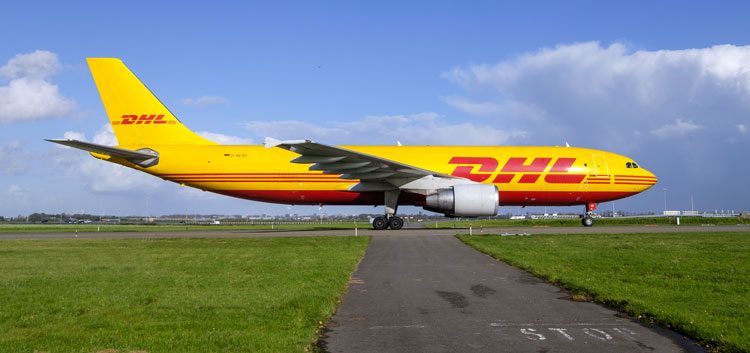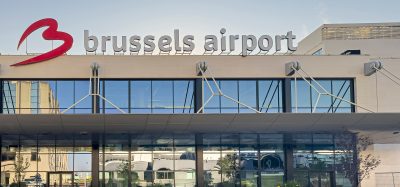The paperless revolution at Schiphol
- Like
- Digg
- Del
- Tumblr
- VKontakte
- Buffer
- Love This
- Odnoklassniki
- Meneame
- Blogger
- Amazon
- Yahoo Mail
- Gmail
- AOL
- Newsvine
- HackerNews
- Evernote
- MySpace
- Mail.ru
- Viadeo
- Line
- Comments
- Yummly
- SMS
- Viber
- Telegram
- Subscribe
- Skype
- Facebook Messenger
- Kakao
- LiveJournal
- Yammer
- Edgar
- Fintel
- Mix
- Instapaper
- Copy Link
Posted: 5 October 2011 | Saskia van Pelt, Business Development Director, Schiphol Cargo | No comments yet
Many aspects of the air cargo industry have changed beyond recognition in recent years. But one area which has stubbornly resisted change is the continuing reliance on paper processes.


Airfreight is not the small and highly specialised industry it once was. Popular estimates state that around 10 per cent of all global trade (by volume) is now carried by air. But, when you look at the total value of all this airfreight traffic, it is actually closer to 40 per cent of all world trade.
The wastefulness of paper processes
Airfreight is vitally important to global trade. Yet many of its processes are still paper-based, creating unnecessary delays, and increases the chances of errors when transferring data from one piece of paper to another.
It is reckoned that an airfreight shipment requires up to 30 documents. That adds up to a staggering 80,747 freighter-loads of waste paper (about 9,000 tonnes) every year. The efreight concept is the solution to this problem. Launched by IATA a few years ago, e-freight aims to take the paper out of the air cargo supply chain and replace it with less costly, more accurate and more reliable electronic messaging. The project is an industry-wide initiative involving carriers, freight forwarders, ground handlers, shippers and customs authorities. IATA predicts the industry as a whole could save $4.9 billion every year, by switching to e-freight.
All in all, a great idea. Sadly, like so many initiatives in the cargo side of the aviation business, it failed to catch on. The airlines tried to persuade the forwarders to change their processes and come on board. But many forwarders claimed they could not see any direct (or, at least, financial) payback, so were unwilling to change working methods and invest in new equipment to link themselves into the e-freight chain. They claimed the airlines would be the chief beneficiaries, so should ‘pick up the tab’, and provide agents with financial incentives. This stale-mate led to a general lack of interest and action.
Some of us in the industry could see that efreight would benefit everyone in the supply chain, and feel that e-freight would save money both for airlines and freight forwarders. The fact that a single data set can be input by one party at the beginning of the supply chain, and then used to populate fields in every process along the way, must surely save time and money for everyone?
Furthermore, this takes no account of the additional savings from eliminating re-keying errors, those inevitable mistakes when somebody copies data from one form to produce another. It is hard to place a cost on these errors, but incorrect paperwork is one of the main reasons for delay in airfreight shipments, often causing urgent cargo to be held up for days while errors are corrected and all parties satisfied so the shipment can proceed.
Efreight at Amsterdamn Schiphol
At Amsterdam Airport, Schiphol, it is our policy to give 100 per cent support to the efreight concept, as a fundamental element in what we are doing to bring air cargo processes up to date. For us, there are two main drivers; firstly, anything that helps to give Schiphol the edge over other major European gateway airports will be good for our community and ultimately good for us. Reducing transit times, reducing costs and improving the customer experience will bring airlines, cargo and employment to our airport. Data captured at source can also drive enhanced cargo ‘track-andtrace’ facilities that are visible to all parties in the supply chain, so providing better service, and reducing staff time taken up in answering enquiries from customers. More efficient cargo flows through Schiphol will assist our drive to be Europe’s preferred cargo airport.
Of course, Schiphol has no direct involve – ment in air cargo. We do not produce anything, we are not forwarders, and we are not an airline. But, as owners of our country’s main airport, and host to a large community of airfreight users and suppliers, we are ideally placed to act as facilitators in matters that will benefit our community. Because we have no commercial involvement, we are neutral and trusted by all parties.
The vehicle for our e-freight aspirations is the E-freight@NL project. In 2010 this was awarded a €1.2 million grant from the Dutch Ministry of Economic Affairs. KLM Cargo are heavily involved with the project, other participants also include supply chain partners and Air Cargo Netherlands (the industry’s representative body, bringing together airlines, agents, handlers, truckers and others). Schiphol plays a key role in the project, and I am its representative on the committee.
Because of the nature of air cargo – a global business involving hundreds of airlines, thousands of origin and destination points, and millions of shipments – we always felt a ‘big-bang’ approach, in which all airlines and forwarders simultaneously switched to e-freight worldwide, could never work. So a key element in our strategy is to encourage e-freight traffic on a particular trade lane, and then work to increase the take up by carriers serving that route.
We devised a plan to partner with like minded airports around the world, at opposite ends of our more important trade lanes. We started by building a close relationship with Changi Airport in Singapore, resulting in a memorandum of understanding for the development of e-freight between our two cities. This was announced and signed at last November’s Air Cargo Forum. The MoU (memorandum of understanding) requires both airports to facilitate, and promote to our local communities, the use and further development of paperless air cargo transport, so creating a paperless trade lane between us. We have also agreed to exchange e-freight knowledge and expertise, and explore the possibilities of joint research.
We followed this with the signing of a second MoU with Seoul (Incheon) Airport, in March 2011. With similar objectives to our agreement with Changi, this has already resulted in two successful e-freight workshops; one in Incheon, and more recently at Schiphol. The latter event was attended by representatives from both airports, along with executives from Korean Air, Air France KLM, Dutch Customs, IATA, handling agents and several of the major logistics providers with bases at Schiphol. Members of the efreight@NL project team were also in attendance. The workshop identified a number of bottlenecks, such as the need to improve the quality of messages. Some of the current obstacles to e-freight have proved very easy to resolve, and we are confident we will see a steady increase in paperless shipments between Amsterdam and Incheon in the coming months. Further opportunities to replace paper documents with electronic versions also emerged. Another workshop will take place in Incheon in the near future.
In a further bid to increase take-up for efreight, Schiphol has now established a web based ‘e-freight academy’, a paperless, online tutorial and information resource enabling staff to learn more about e-freight and how it works. As a result of our proactive stance on e-freight, Schiphol is already being viewed as an example of how to get the e-freight ball rolling. Recently, we played host to a major delegation of Russian authorities, carriers and others. They spent two days talking to us about e-freight, and looking at what we have achieved so far in the Schiphol community.
Our various actions are having a real, positive impact on e-freight traffic at Schiphol: efreight shipments have doubled since January this year. More significantly, more carriers are now coming on board. KLM numbers have been stable to date, but they are now actively promoting the use of the e-airway bill on a commercial level, so we expect their numbers to increase soon. Singapore Airlines has meanwhile risen to second place behind KLM Cargo, as the next best performing airline in e-freight shipments from Amsterdam. And Korean Air has begun trial shipments, and plans to move to larger volumes in October.
Schiphol’s drive to streamline air cargo processing goes far beyond e-freight. We are also heavily committed to two other local projects to expedite air cargo flows and reduce paperwork. The first is Schiphol SmartGate Cargo, a public-private collaboration between Dutch Customs, Air Cargo Netherlands and Schiphol Group. This involves the integrated monitoring of goods leaving the EU via Schiphol, allowing rapid and efficient clearance. It has led to the establishment of the Customs Control Centre, a central helpdesk for customs services customers, and the Cargo Checkpoint in which various monitoring and inspection processes take place within a single procedure.
Schiphol Smartgate Cargo also includes the ‘Information Broker’, a system that allows both the industry and customs to determine in advance whether a shipment requires inspection, based on electronic pre-departure and pre-arrival information. Smartgate is already delivering shorter lead times, lower costs and increased reliability, in addition to meeting the need for enhanced safety and security.
The second project is E-link. This is a pilot scheme being operated by Amsterdam Connecting Trade (ACT – Europe’s most innovative and sustainable logistics hub) in collaboration with Schiphol Smartgate Cargo. Three handling companies and three forwarding companies are currently testing the system, whose aim is to reduce customs clearance times and, once again, to reduce unnecessary paper in the supply chain.
Under E-link, the existing ACN pass (which all drivers have been using to load or offload cargo on Schiphol airport premises) has been expanded into a ‘smartcard’. Now drivers can load all the necessary information regarding customscleared shipments onto the card. On arrival at Schiphol, the driver enters a handling agent’s premises by means of number plate recognition and identification through the ACN pass. He then hands over his pass, and the necessary information and responsibility of the shipment is transferred to the next party in the supply chain, and he is then automatically assigned a door to offload his cargo. This procedure complies with all customs procedures, and has already demonstrated a 25 per cent reduction in time taken for some processes.
At Schiphol, we are passionate about efficiency in the supply chain, and equally keen to play our part in industry sustainability. These are both keys to the future of our business. Although we are not directly involved in the air cargo supply chain, our success is inextricably linked to the fortunes of the airfreight business, so we support any initiative that strengthens the industry and reinforces its role in global trade. For us, e-freight is about overall process efficiency, Smartgate represents enhancement of local infrastructure, and E-link means faster physical flow of goods.
We are also realists. The air cargo industry is made up of thousands of inter-connected parties, with sometimes conflicting agendas and requirements. They will not always pull in one direction without outside influence. This is the role which we have cast for ourselves as facilitators, and agents for change. The need for ever increasing security, and growing concerns about the environment are both modern day external factors that have a tendency to resist the fast flow of air cargo, and so adversely affect our business. This is why the industry must forget its differences and adopt new practices and technology. These will help counteract the impact of new challenges, and create a more certain future for our industry.
About the Author
Saskia van Pelt joined Amsterdam Airport Schiphol’s Cargo Department in 2008, where she is responsible for its e-commercial strategy and cargo business development. Saskia leads frequent overseas missions, often alongside senior members of the Dutch Government. She also participates in the efreight@NL project as a steering committee member. Before joining Schiphol Cargo, Saskia spent 10 years in industry, including export management and overseas sales and marketing posts. From 2004-8, she was Senior Marketing Manager for the Port of Rotterdam, with particular responsibility for developing business with the northeast Asian market. Saskia has spent several years working outside her native Holland, speaks five languages, and is a graduate in Business Management having Freighter airlines at Schiphol studied in the Netherlands, the UK and Spain.


















